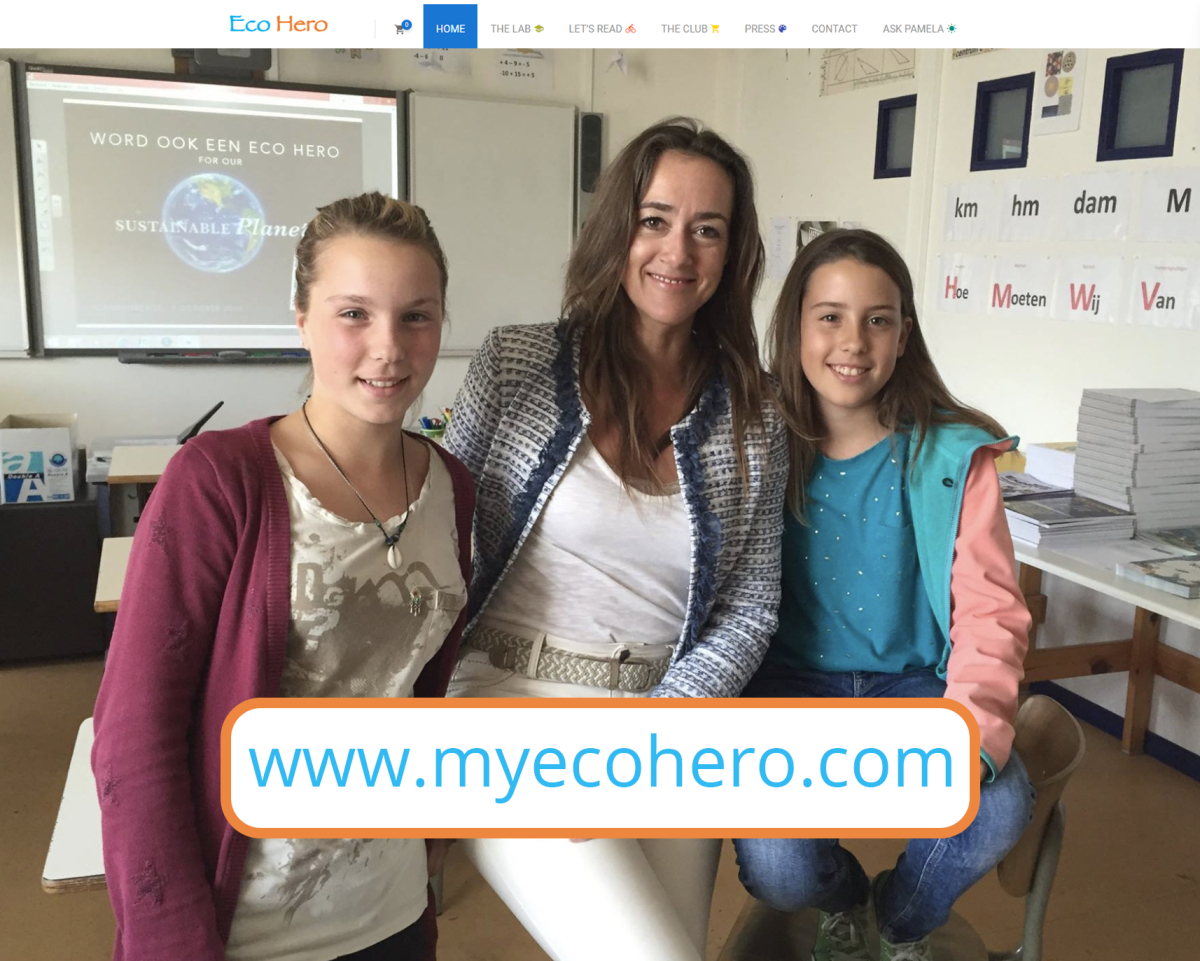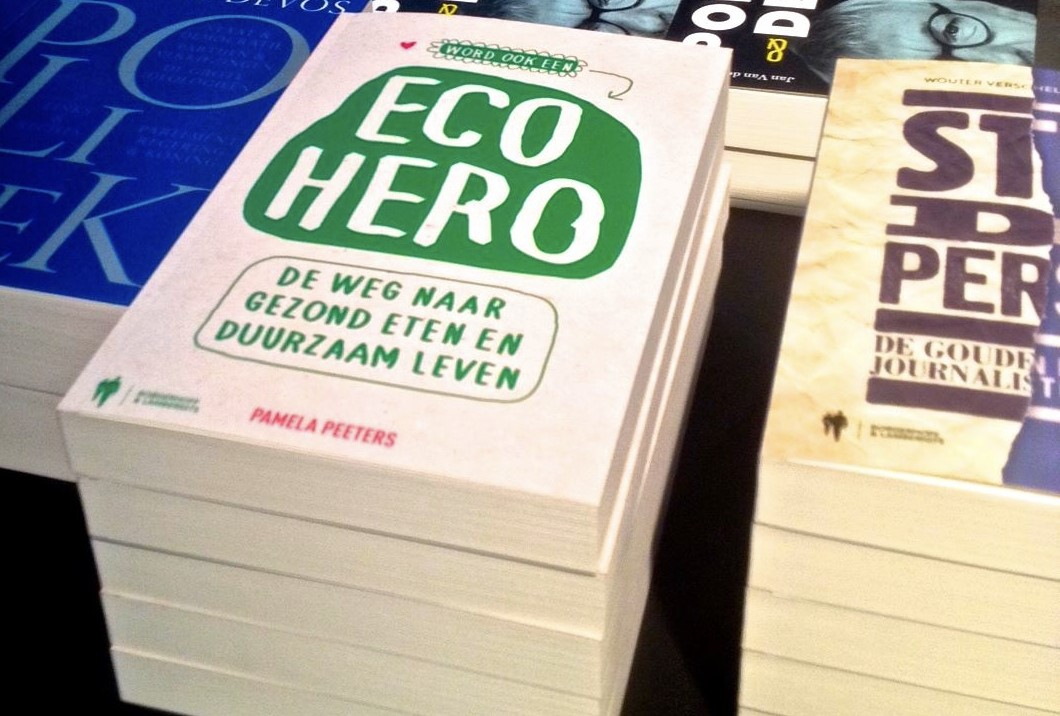- Ana Sayfa
- NEW HERO: environmental economist and media producer Pamela Peeters is on a mission to make the world more sustainable as "eco hero!"
NEW HERO: environmental economist and media producer Pamela Peeters is on a mission to make the world more sustainable as "eco hero!"
07/03/2024 - 21:04
In early 2019, I received a call from Pamela Peeters. She inquired if we, at TerraCottem BV, would be interested in joining an expert panel focused on four ecosystems: water, air, forest, and soil. Pamela had initiated the “Eco Hero Challenge” youth project and was seeking the involvement of a soil expert. Her infectious enthusiasm instantly won me over. Fast forward four years, and a multitude of developments have unfolded since then…
| Interviewer: Davy Ottevaere, Technical Manager TerraCottem BV |
Pamela Peeters is an ecological economist specialised in sustainable development. She has been helping to make the world more sustainable for 25 years. A very driven lady, who crossed our path some time ago. Living in the USA, but with Flemish roots. We had a very interesting and extensive conversation.
| Pamela is active on 3 fronts: | ||
|---|---|---|
|
1. |
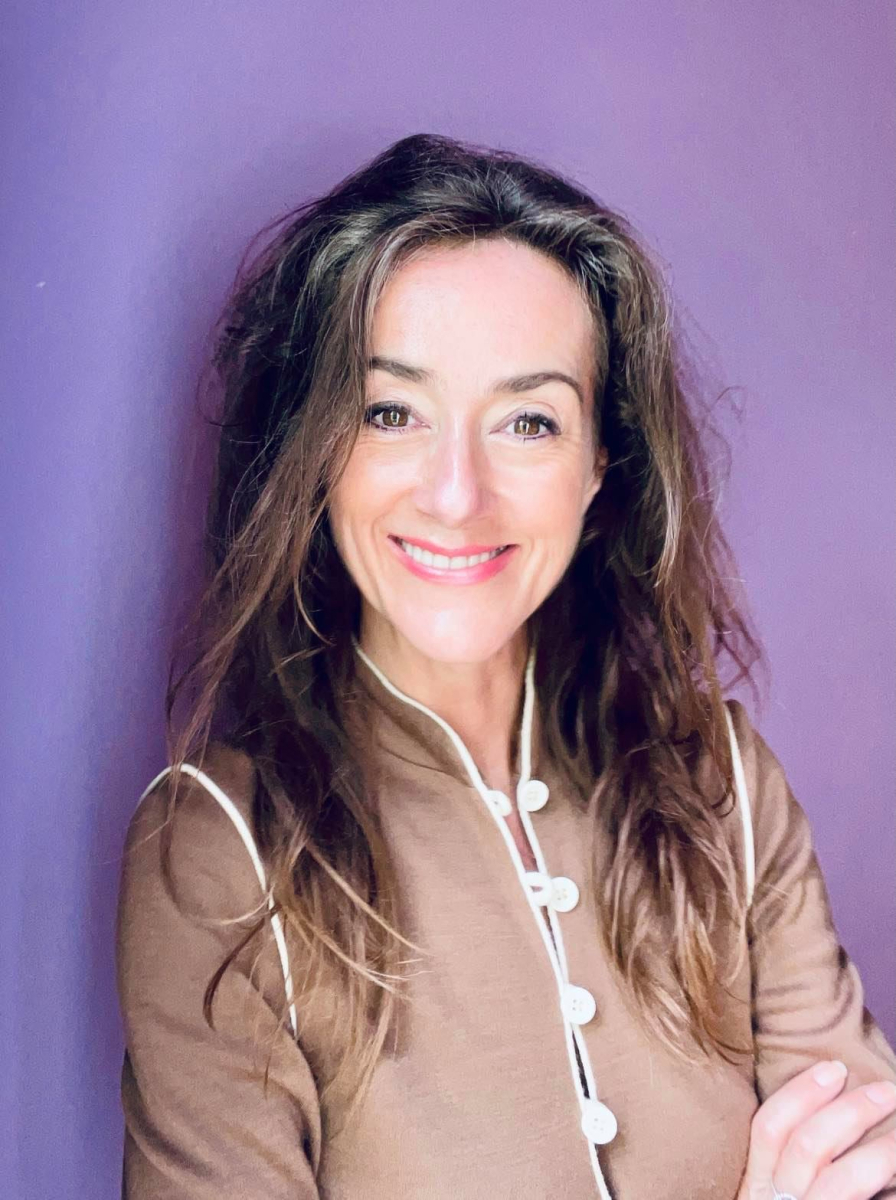 |
Through consulting, she assists both large and small companies to embed their vision of sustainability into in their business or practices. |
|
2. |
She also conducts workshops in the process. |
|
|
3. |
She is also active in the media; both radio and tv and she writes books. She collaborates with young people, on various projects, including the Eco Hero project. |
|
Hi Pamela, thanks for your time. I got to know you through the “Eco Hero” story. Could you explain what “Eco Hero” is for our readers who might not be familiar with it?
"Eco Hero symbolises a new kind of hero or heroine, who is truly positive. Who brings people together. Who listens to the language of nature."
Which, by the way, anyone can do. The latter is not really ‘Eco Hero’, but a sensibility. A disposition, which one can learn by gardening or trekking in nature.
The “Eco Hero Lab” is both a school programme and an online portal that inspires young people to become planet protectors. Children also learn the science about different ecosystems of our planet through a course, a comic strip and videos. They are then invited to bring science to life at their own school or after-school programme through the 5 ‘Eco Hero Challenges’.
I also bring this educational project to museums where I involve other experts. like you, for example, during the film shoot in Brussels.
Another example is the Children’s Museum of the Arts where I stayed for a month with my creative Eco Sanctuary installation. It was launched during one of the previous editions of Climate Week NYC.
Another fine partner is the Smithsonian National Museum of Natural History in Washington.
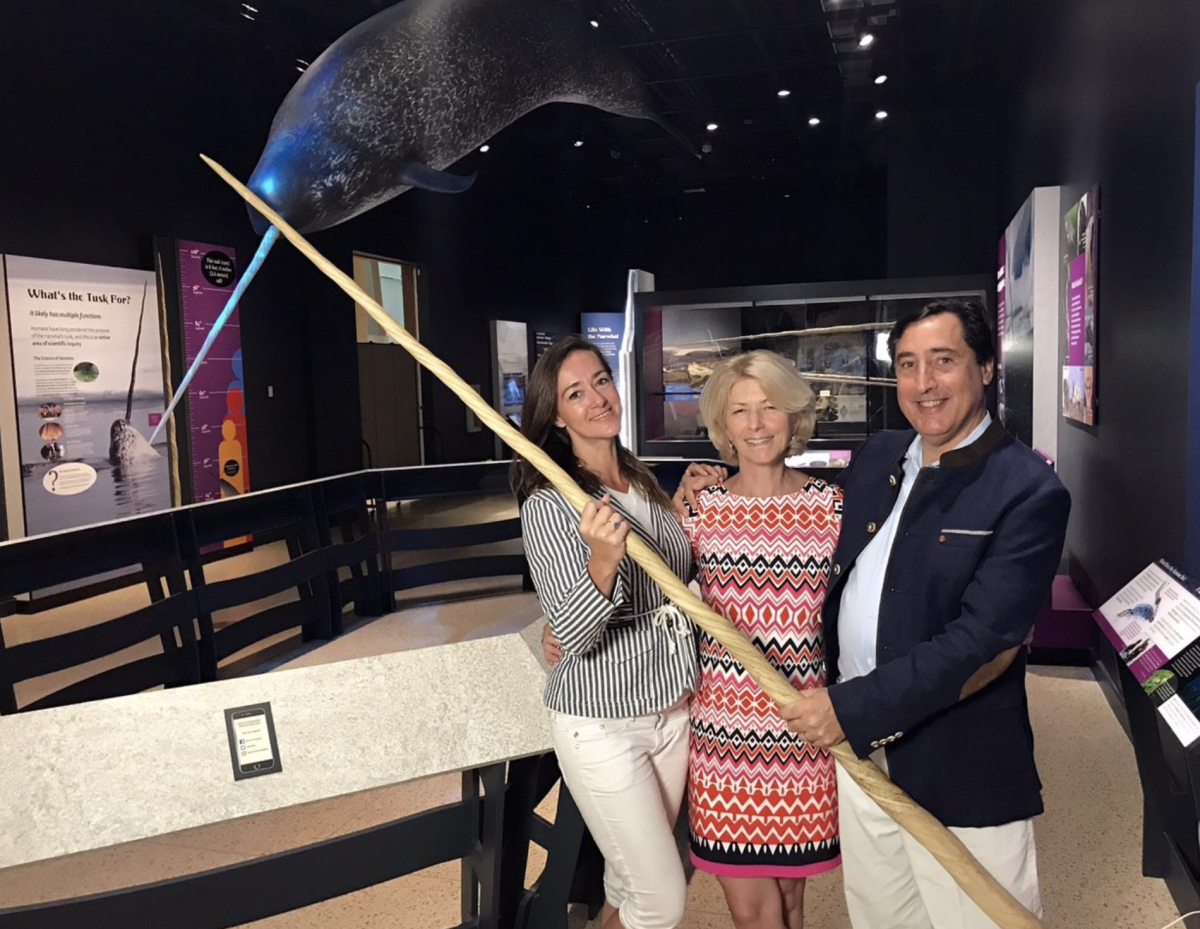
The ultimate goal of the Eco Hero projects is to inspire and motivate people to contribute to building a sustainable planet because everyone can make a difference.
In Belgium, I am looking for 1,000 voices; 1,000 of these Eco Heroes! And worldwide even 10000 Eco Heroes (laughs).
| And there is, of course, my book “Eco hero: de weg naar gezond eten en duurzaam leven” (The road to healthy eating and sustainable living) |
|---|
|
(Publisher: Borgerhoff & Lamberigts, ISBN 9789089313706): |
I really like your comic. The artwork is beautiful.
Thanks! I’m so pleased to hear that.
My husband has been working with a graphic designer for 20 years. He is now the “number one” of The Wall Street Journal’s graphics team. One of his top designers was just in between jobs at the time which enabled him to draw our comic.
Yes, I take the result from granted. But when I look at the comic in detail and see all those drawings by Narwhal, I must admit that the hundreds of beautiful drawings are impressive!
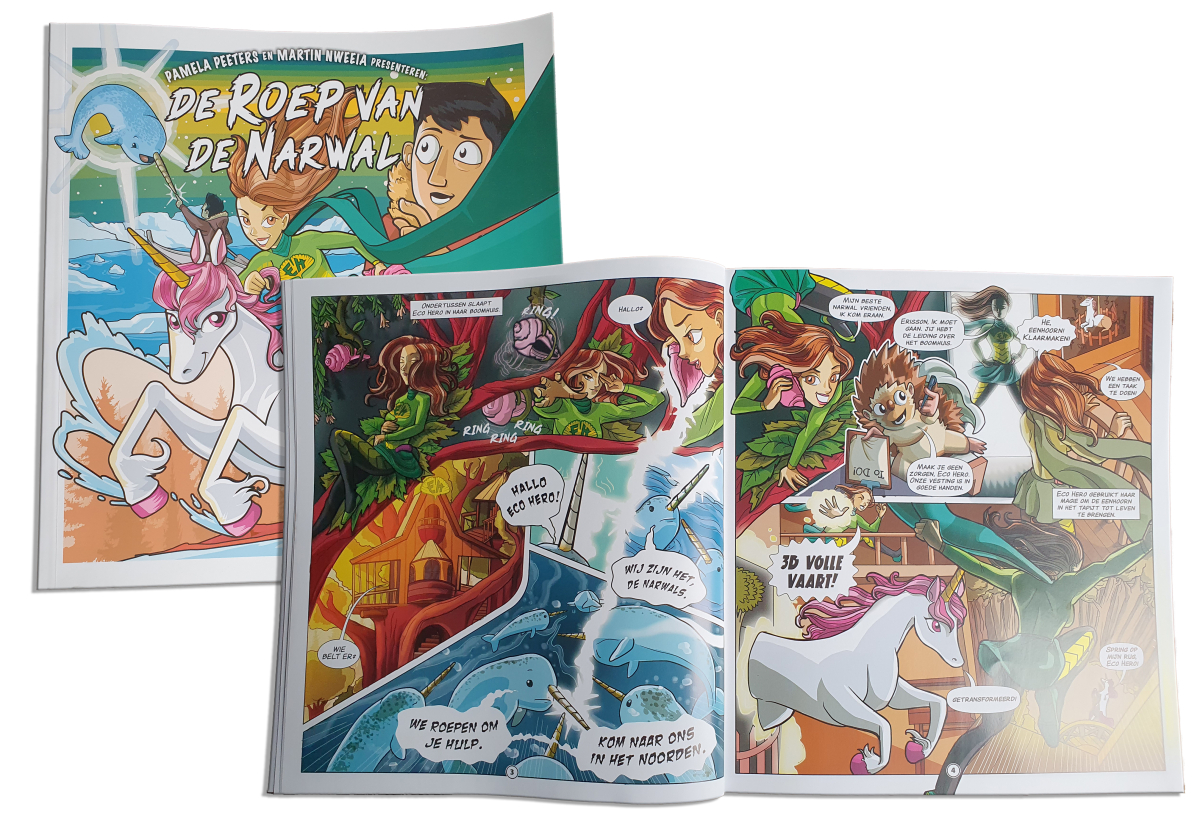
Hours and hours of work crept into that. That was very intensive. I’m over the moon with your compliment.
Going back a bit: how did you come into contact with us, with the company TerraCottem BV?
It was through Philip Bossuyt of Phibo Press Communication. I have known him for a long time, from the time when I produced and presented the TV series “Our Planet” More, He happened to send me a press release from you guys. That immediately appealed to me. I knew straight away that you are a great company. Philip put us in touch. And that’s how the ball got rolling.
I was in search of a soil specialist to represent the ecosystem “soil.” After our conversation, I was convinced: I wanted Davy on my expert panel!
Our initial collaboration was a school visit in October 2019. We conducted your interview in Berchem, in the presence of a classroom full of students:
This was subsequently followed by “The Day of the Eco Hero Webinar” on May 5, 2020, during which my four experts delved deeper into their respective ecosystems online. They discussed the role of each ecosystem, the challenges they face, and most crucially, the potential solutions:
"I hope people will note in their diaries that 5 May is “Eco-Hero Day”!"
And recently, on 5 May 2023, we started our second film assignment together. I have already had a very nice trailer made:
“The sky is the limit” (smiles).
What will happen to this trailer?
The trailer is going to be sent, in English, to the media, to other companies and to certain museums, along with a communiqué. I also have a few conversations going on myself. The idea is to find the best possible platform for this project.
And, of course, we are also going to put it on various websites, like yours.
Once we have the 1,000 voices, those 1,000 Eco Heroes I mentioned, there will be a closing ceremony. Hopefully in a botanical garden or something.
How will those 1,000 voices be counted?
Within each participating class, you already have a group of five team members irrespectively. They in turn can also invite other members. That adds up quickly...
And I am also going to promote the Eco Hero courses on various websites: my own, yours, those of other participating companies, etc. With a link to the course, of course.
On my webpage, you can also find previous Zoom meetings with detailed explanations on how to participate in the Eco Hero Challenge. Moreover, we are hoping for some initiative and autonomy in spreading the message further.
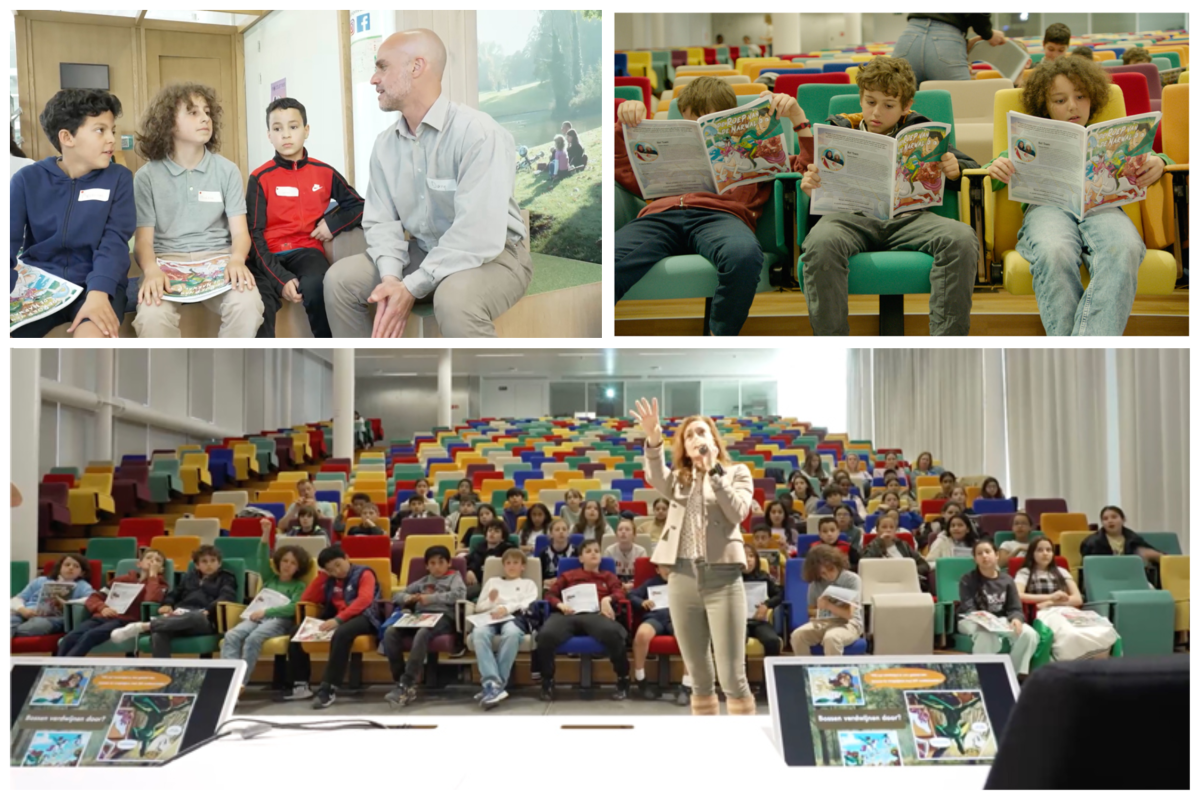
Alright, fantastic. I would also love to delve a bit deeper into who Pamela Peeters really is. We have known each other for some time, but I’ve never asked: how did you, being Flemish, end up in the US?
I first did 2 Masters in Brussels, Belgium: Master in Applied Economic Sciences (VUB) and Master in Environmental Management (ULB). After that, I had 3 jobs.
- I supported the management of sheltered workshops. On the one hand I taught them the vision of sustainability and on the other hand, I helped them implement that vision in certain market opportunities.
- I also helped prepare the trade mission to India of our then Crown Prince Philippe. When I returned to Belgium after four months, I felt for the first time that my field of work could be so much bigger. Bigger, but also “spicier”, more challenging.
- I also did PR for a niche company, where I learned a lot about marketing, PR, writing press releases, etc. I was bringing the “product” to the end customer, through all kinds of fun promotions. This is where I first came into contact with media.
Those 3 jobs did give me a nice overall picture of what I wanted to do. I wanted to start making media myself, because that is a very “powerful tool” for bringing ideas to people. I wanted to make TV.
At that time, I am talking about 1999, there were many more channels in America than in Belgium. Moreover, both my father and grandfather had lived in America. So the step was not that big for me.
I literally left with two suitcases (laughs).
All by yourself?
Yes, all alone. I knew only 1 person there. But that’s also 1 of the “Eco-Hero” traits:
"If you know what you want to improve, then go for it 100%!"
I also never doubted that I wouldn’t succeed. Because I believed in my own project. Because I knew I could convince people.
I then got a research fellowship at the prestigious Columbia University. I made a demo, I did research, etc. I was looking for the best possible formula to make a TV show around sustainability. Eventually that show came about, after many, many meetings.
"Because that is also a very important factor: finding the right people, who have a positive attitude and want to help in building that dream."

| PamelaPeetersTV |
Those were the 1990s then. Was it as much of a “hot topic” then as it is now?
No, absolutely not. People didn’t understand what I was doing (laughs). The big Rio-Conferentie, the Earth Summit, was held in 1992. It was not until 1997 that Belgium ratified that treaty in the Official Gazette. You could say that I was a pioneer. Thanks to my passion for nature and love for the outdoors, I sensed that this new economic reality was going to be very big, very important.
I know you as someone who is very driven, with a lot of passion. Did you have that passion even before your studies?
Yes, I don’t know if I told you this already, but I founded my first environmental magazine when I was 12 years old (laughs). Together with my best friend. We were reading WWF (World Wide Fund) magazine back then. We became fascinated and set up our own little club. And every few months, we then published our own magazine. That was also used in the classroom. Even the teachers became members of our club.
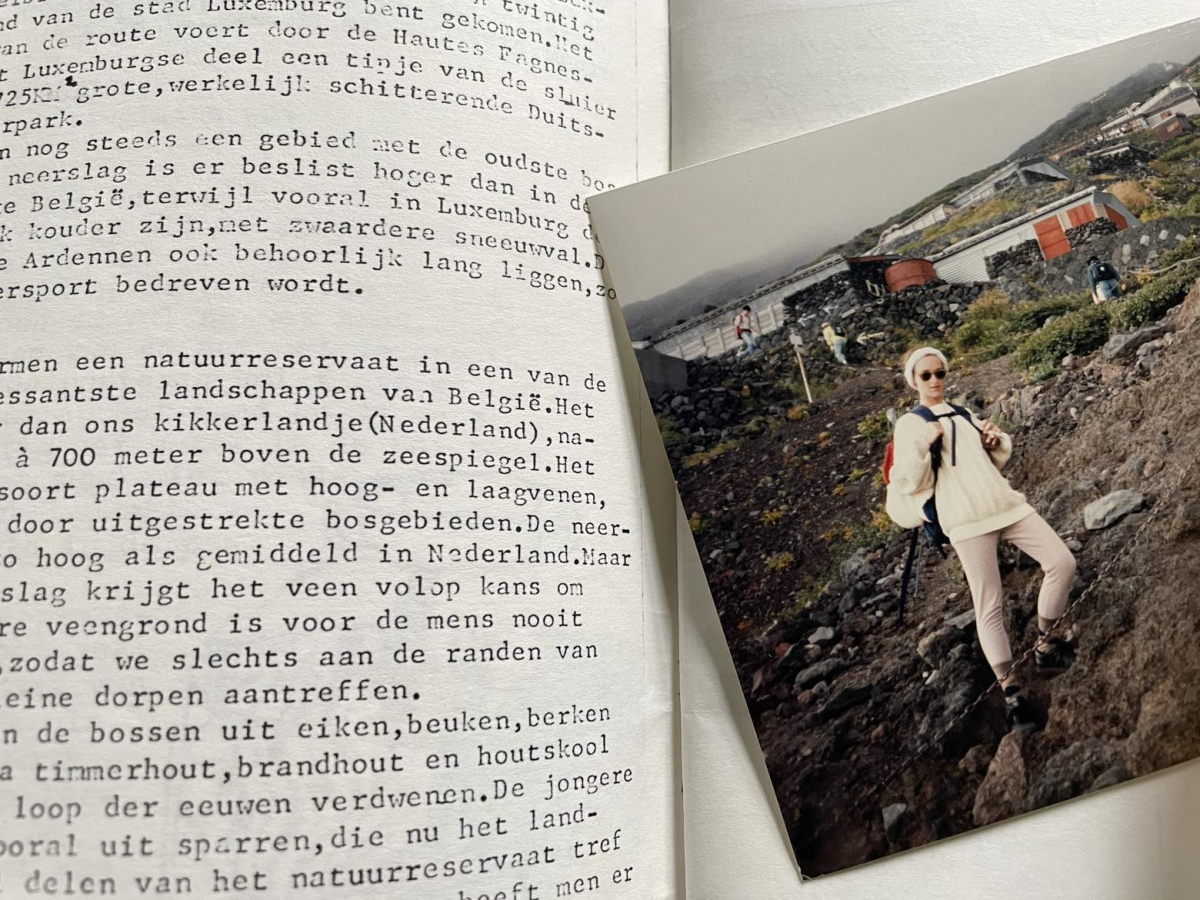
So I actually learned at a very young age to create a movement around ecology. We organised walks. We sent our proceeds from the magazine to WWF. We then got stickers etc., which we handed out. That was great fun. I had a passion AND could share it with others. That made me really happy and made me feel good. And if I’m happy, I want other people to be happy too.
I’ve always had a desire to be outdoors. I embraced backpacking and mountain holidays, even participating in my first survival camp in England at the age of 16. The experience of being close to nature has always had a profound influence on me.
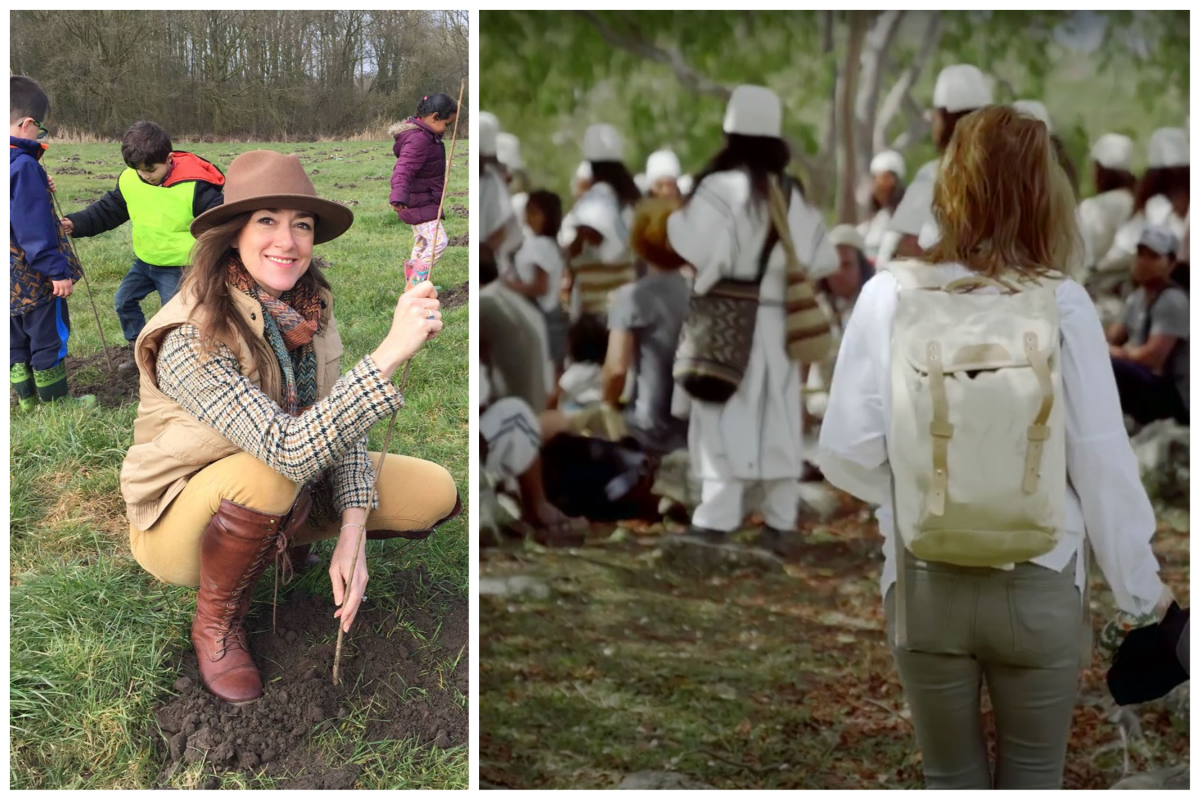
Later on, during my economics studies, sustainable development caught my attention in the third year. It resonated with me instantly, and I knew right away: THIS is what I want to pursue! It was something that not only captivated me immediately, but also something I felt a genuine connection with.
You’ve mentioned ‘sustainability’ several times now. Could you briefly clarify what that term specifically means to you?
"Sustainability: these are the opportunities we have and also preserve for future generations."
Sustainability, to me, is also about allowing nature to regain its balance. Thankfully, there is an increasing effort in ecosystem restoration nowadays. A significant indication of this is the initiation of a new United Nations Decade on Ecosystem Restoration, which commenced on May 5, 2021.
It is also hopeful that we all become more proactive, adhering to the principle that “prevention principle is always better than cleaning up afterwards”.
"If I may give my own personal interpretation of sustainability: it is about respect."
Respect towards you, towards the community and towards the planet. That’s a very broad word, which somewhere is fading a bit in our society.
If I may give you a tip: google John Elkington. In my opinion, he is the grandfather of sustainability. I had the honour of interviewing him about his “Triple bottom line” principle. In it, he discusses the “3 Ps”: People (the social part), Planet (the environment) and Profits (the financial).
A totally different question: what is your favourite tree/plant?
The Ginkgo biloba (Japanese walnut tree) without a doubt. That’s one of the oldest tree species around.
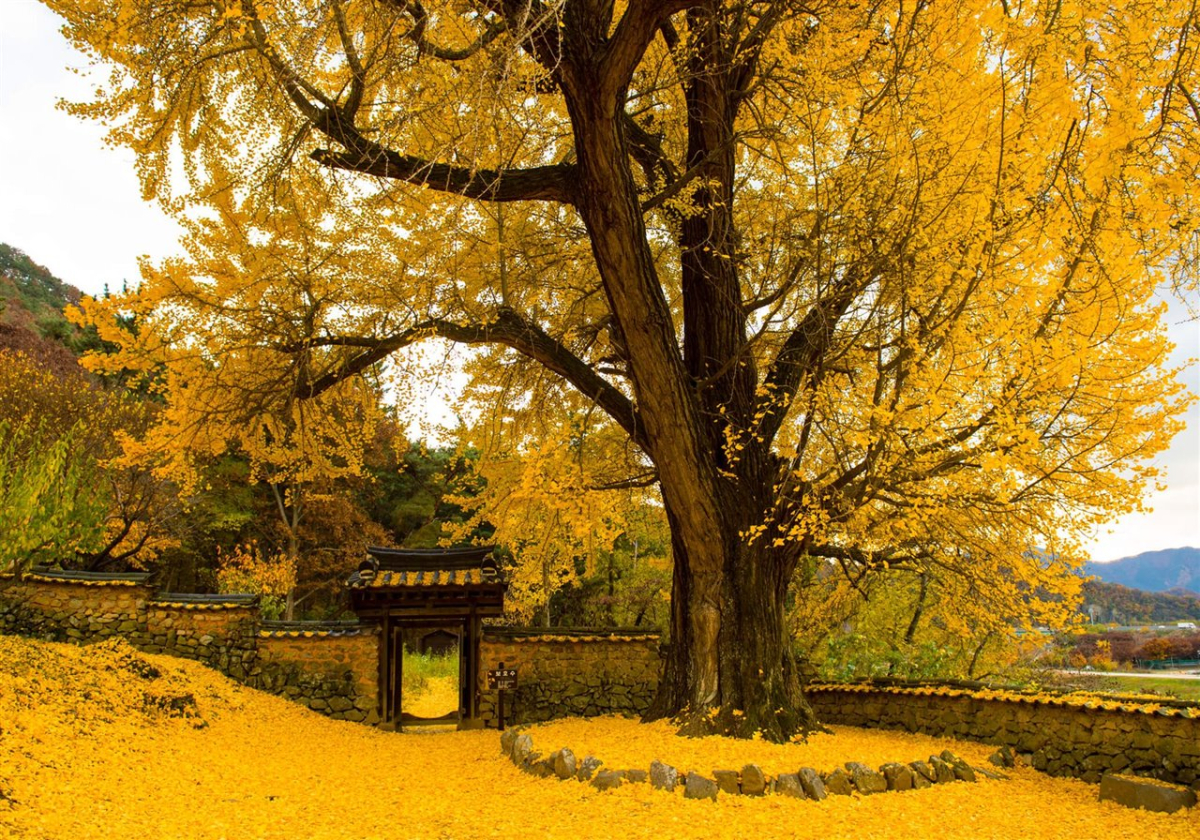
The tree epitomizes ‘longevity’ in the most symbolic way. According to some sources, the tree emerged around 290 million years ago, outliving the dinosaurs. Some of its specimens that still stand today are about 1,000 years old, with six that incredibly survived Hiroshima!
The tree is also remarkably versatile. Its leaves have medicinal uses, the wood is utilized in carpentry, and other parts are incorporated into food.
I, too, engage in creating art from it. I dry the leaves and craft pen drawings on them using Japanese ink. Using a broader brush, I create other nature-inspired artworks, also employing Japanese ink:
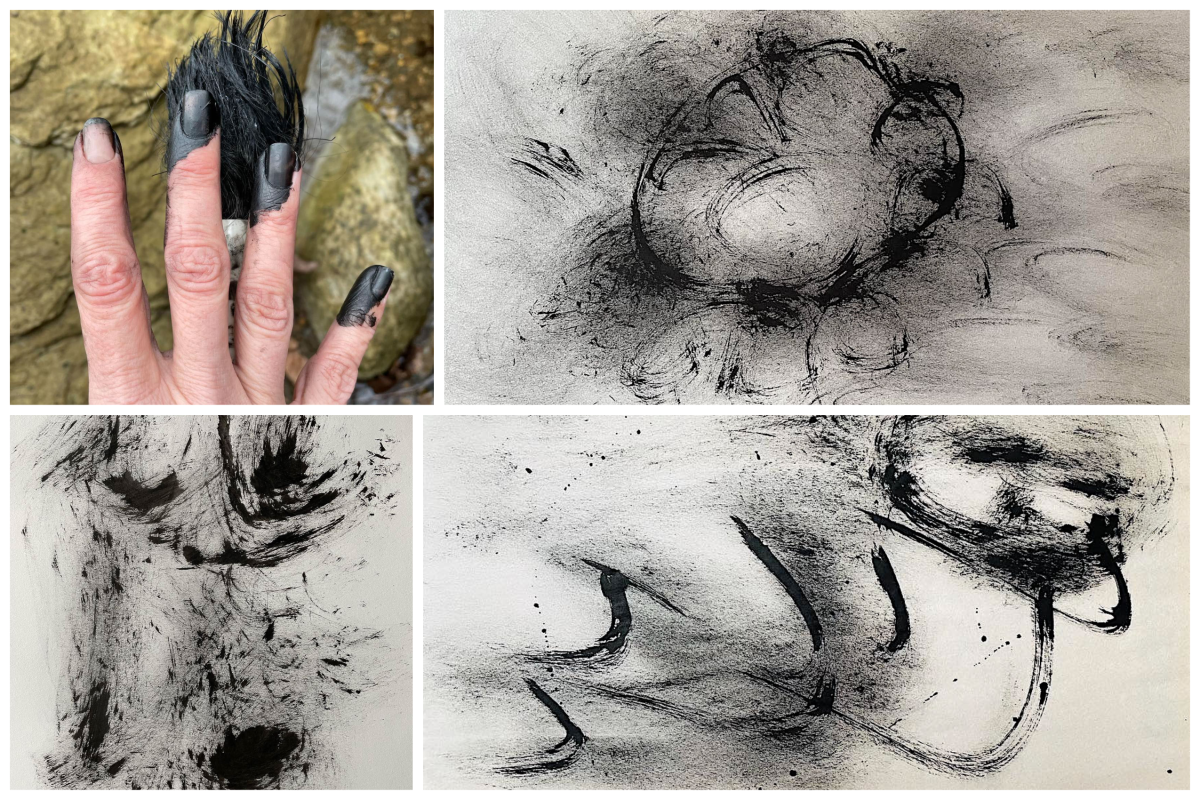
Pamela, what is your dream? When will your mission succeed?
I dream of having that series broadcasted internationally, hoping that the ‘10,000 voices’ TV series will create a significant impact.
Another aspiration of mine is to author another five comic books, a notion that is quite ‘outlandish,’ of course (laughs). Comics that will address various environmental issues or advocate for different animal species. Currently, there’s one in the works concerning fireflies.
Presently, I am also involved in filming a documentary in Colombia featuring the ‘indigenous Arhuaco people’. My hope is that it achieves immense success in terms of reach and influence, prompting individuals in our Western societies to contemplate the lives of people there who share a distinct, ‘more genuine’, and sincere connection with nature.
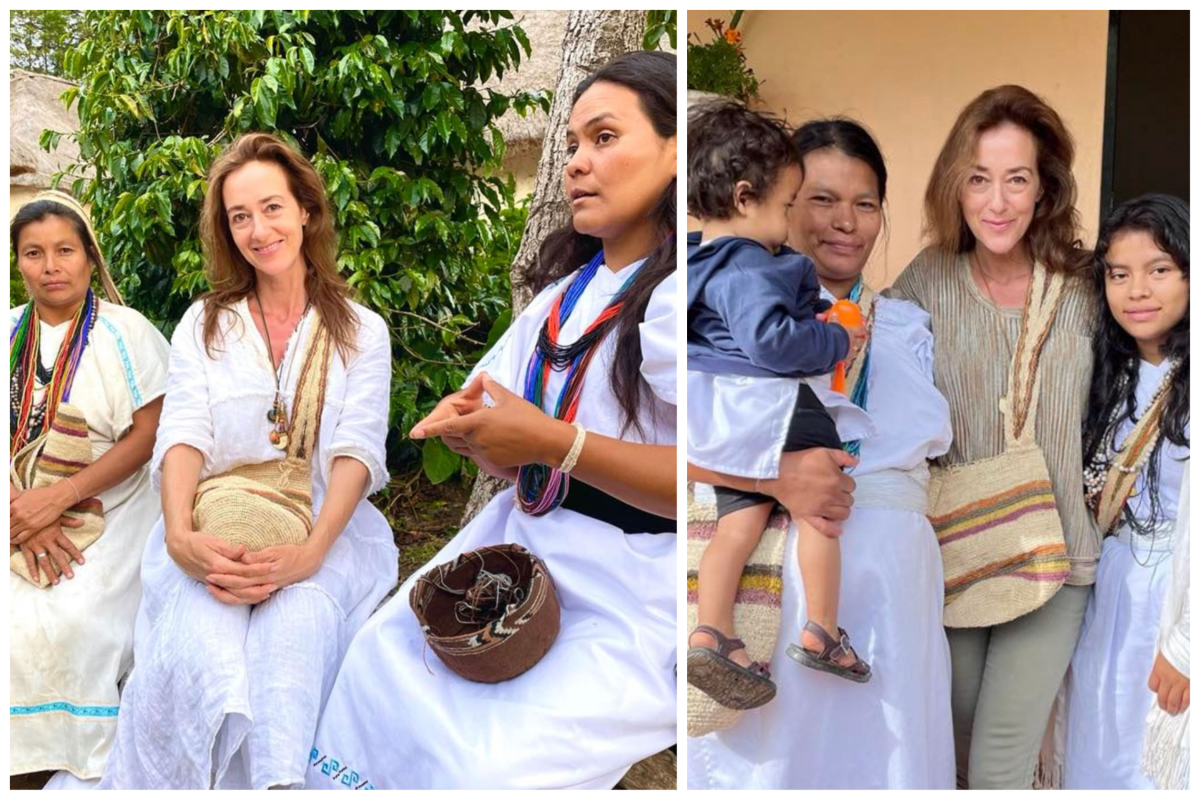
I’ve also developed a motivational card game named ‘Elements’. This set of 31 cards, enriched with my nature photography and blended with inspiration, aims for a deeper level of engagement. It also includes a workshop and a do-book, and I envision a TV show revolving around this concept.
Why did you start collecting the 1,000 voices in Belgium and not somewhere else like the United States, for instance?
That’s a thoughtful question. Primarily, it was due to practical considerations. Remember, Dutch is my native language. Also, Belgium’s compact size is an advantage; I can promptly contact five individuals, schedule meetings, and see them within a relatively short time and distance.
Additionally, Belgium holds a pioneering position in sustainable development, and it rightly deserves acknowledgment and to be highlighted.
What else is in the pipeline in the near future?
On my cooker are a number of pots (laughs):
- First of all, continuing to finish the 1,000 voices project properly. I will probably come to Belgium sometime soon to keep up the momentum that has been created. Then I’ll do a workshop at another location: I already have a couple of possible locations.
- I will also return to Colombia to shoot for a third time to submerge myself even deeper into the secrets of their wisdom to care for Mother Earth.
- This summer, I embarked on another expedition to the North Pole, accompanied by a team of four professionals headed by Dr. Martin Nweeia, with whom I co-authored a comic. Our team also included Joe Rohde, a veteran with over 40 years of experience at Disney Imagineering, and Jim McEachen, a highly accomplished filmmaker. Our mission was to work on the creation of a new educational model for Canada, during which we also produced six video modules that are pending completion.
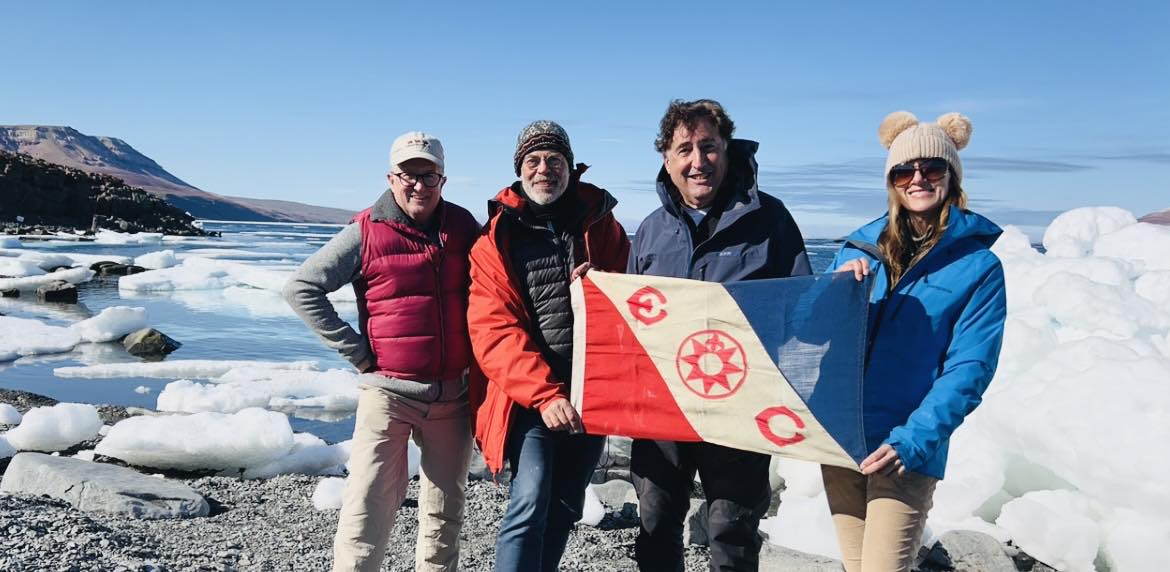
Lastly, I’d like to express my gratitude to you for this interview, Pamela. I am confident that we will be in touch again soon.
More information about Pamela Peeters?
Pamela Peeters
E: pamela@pamelapeeters.com
W: www.pamelapeeters.com
If you know someone who would also like to read this article, feel free to copy the link and share.
Would you like to be in the spotlight too?
You can!
Send a quick email to marketing@terracottem.be and we will schedule an online meeting together.
Would you also like to join this Eco Hero Challenge and become one of the 1,000 Eco Heroes?
Quickly visit myecohero.comWould you also like to join this Eco Hero Challenge and become one of the 1,000 Eco Heroes?
Quickly visit myecohero.comTerraCottem Intl. SL
Apartado de Correos 4511190 Benalup (Cádiz)Spain

